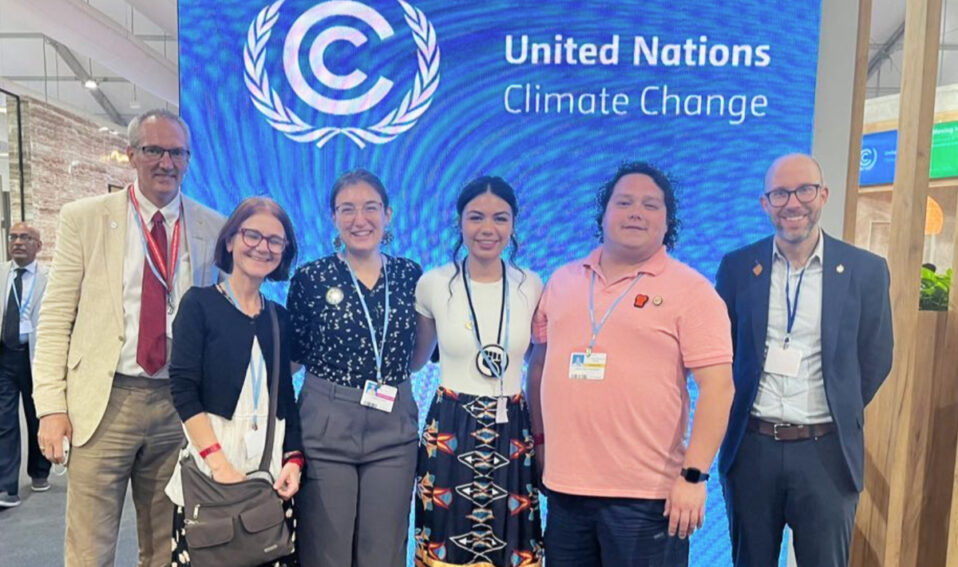Circumpolar climate scientist and ELCIC member Katarina Kuhnert participated in the 27th meeting of the Conference of the Parties to the United Nations Framework Convention on Climate Change (COP27), in Sharm El-Sheikh, Egypt, November 7-19.
Kuhnert was part of The Lutheran World Federation (LWF)’s delegation which consisted of 40 young climate activists from members churches across the globe.
“It was really amazing to connect with other youth leaders and faith leaders from around the world,” Kuhnert said. “Interfaith communities were joining the voices of the most vulnerable at COP27 to say that this is the global test on Loss and Damage – the idea that climate change is caused by increased greenhouse gas concentrations in the atmosphere. The operationalization of the Santiago Network and establishments of the Loss and Damage Funding Facility were huge highlights of the event for me, absolute highlights worth celebrating.”
Kuhnert, along with colleagues from the Northwest Territories, hosted a panel entitled ‘Queer Change Makers and Climate Action in Canada: The Role of 2SLGBTQ+ in the Climate Crisis’. Through this space, she was able to speak about the vulnerability of 2SLGBTQ+ communities, as well as sharing their knowledge and transformative solutions to the climate crisis.
Throughout the event, Kuhnert was reminded of the role of the church in helping address climate change while enacting climate justice for all – including that of our future generations.
“We need to really be working on reconciliation within our church communities and supporting our indigenous communities who are doing the most successful work on climate action in Canada,” Kuhnert said. “That’s the number 1 thing we can do: throw our support behind those communities. The role of faith communities within this space as a moral and equitable leader is only facilitated by us actually being moral and ethical leaders within the way we act. We have to act morally on this issue. That means we actually need to look at the way that we as churches and people contribute to the climate crisis.”
“We are seeing the impacts of climate change,” she said. “It is very important to believe that we can make a change, because we can, and it’s not too late. Our actions now have very significant consequences for future generations and within our own lifetime.
“I don’t want to live through the devastation of our communities because of something we could act now to prevent,” Kuhnert continued. “That is a really strong call to action for me within my own life. As much as it is generous, it is also selfish, because I do not want to see the land and community that I love be devastated by something that I could have a hand in changing. As much as you may hear negative things about these conferences, we are seeing good things happen. These spaces are making a difference. We have to believe that it is possible to change. Our faith helps us understand that we can transform.”
Learn more about the Lutheran World Federation’s youth delegation here.




